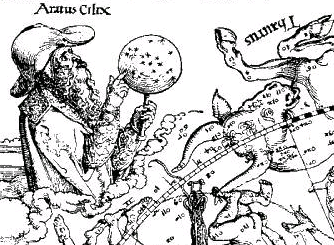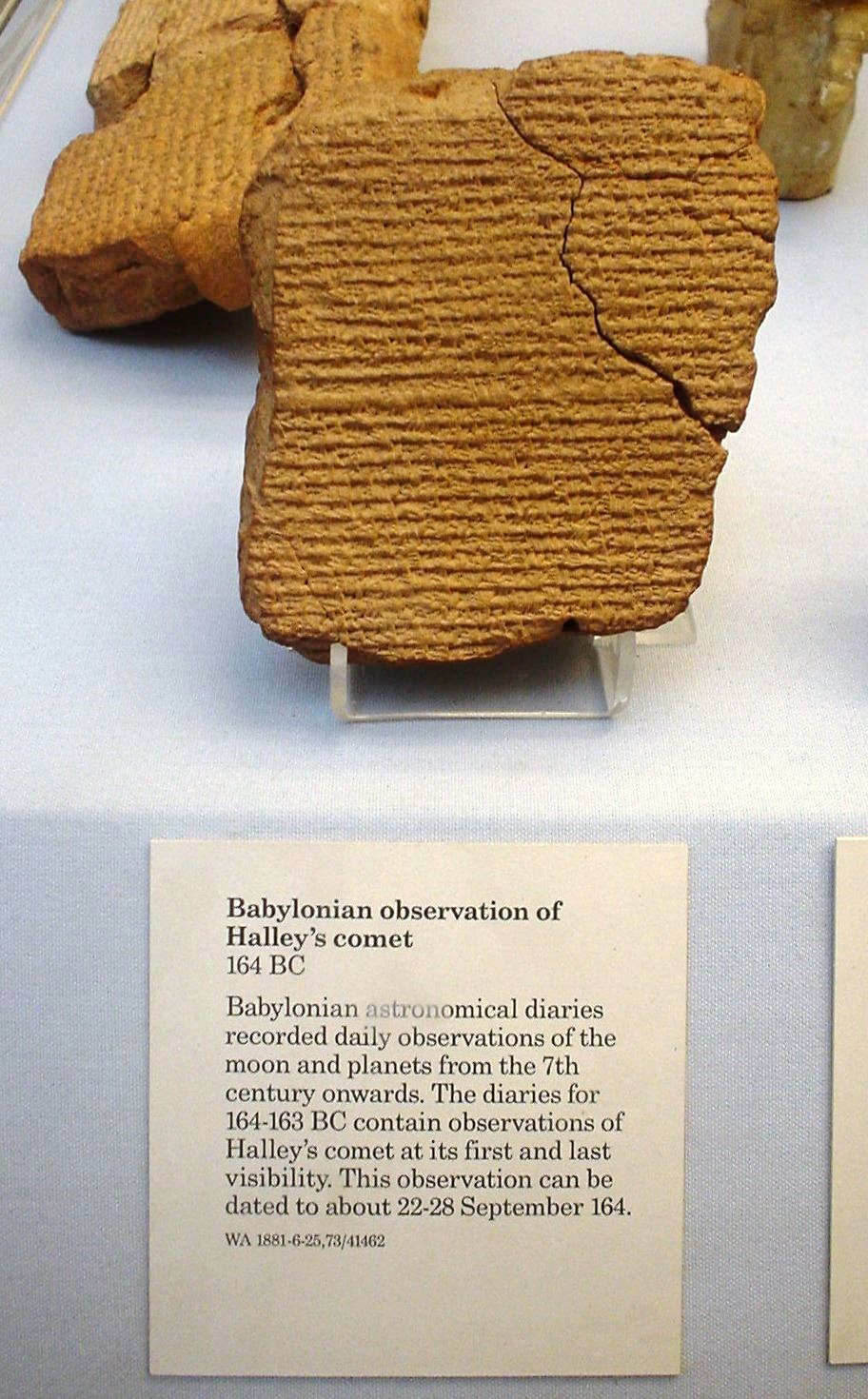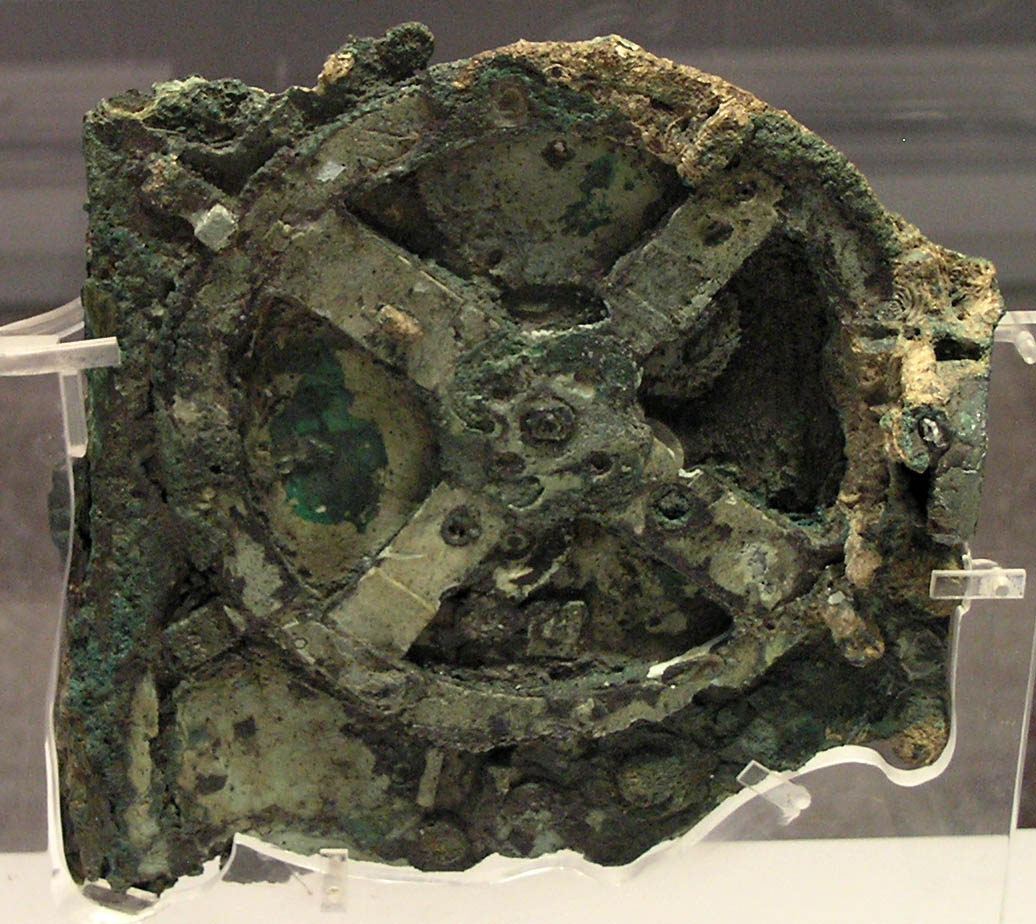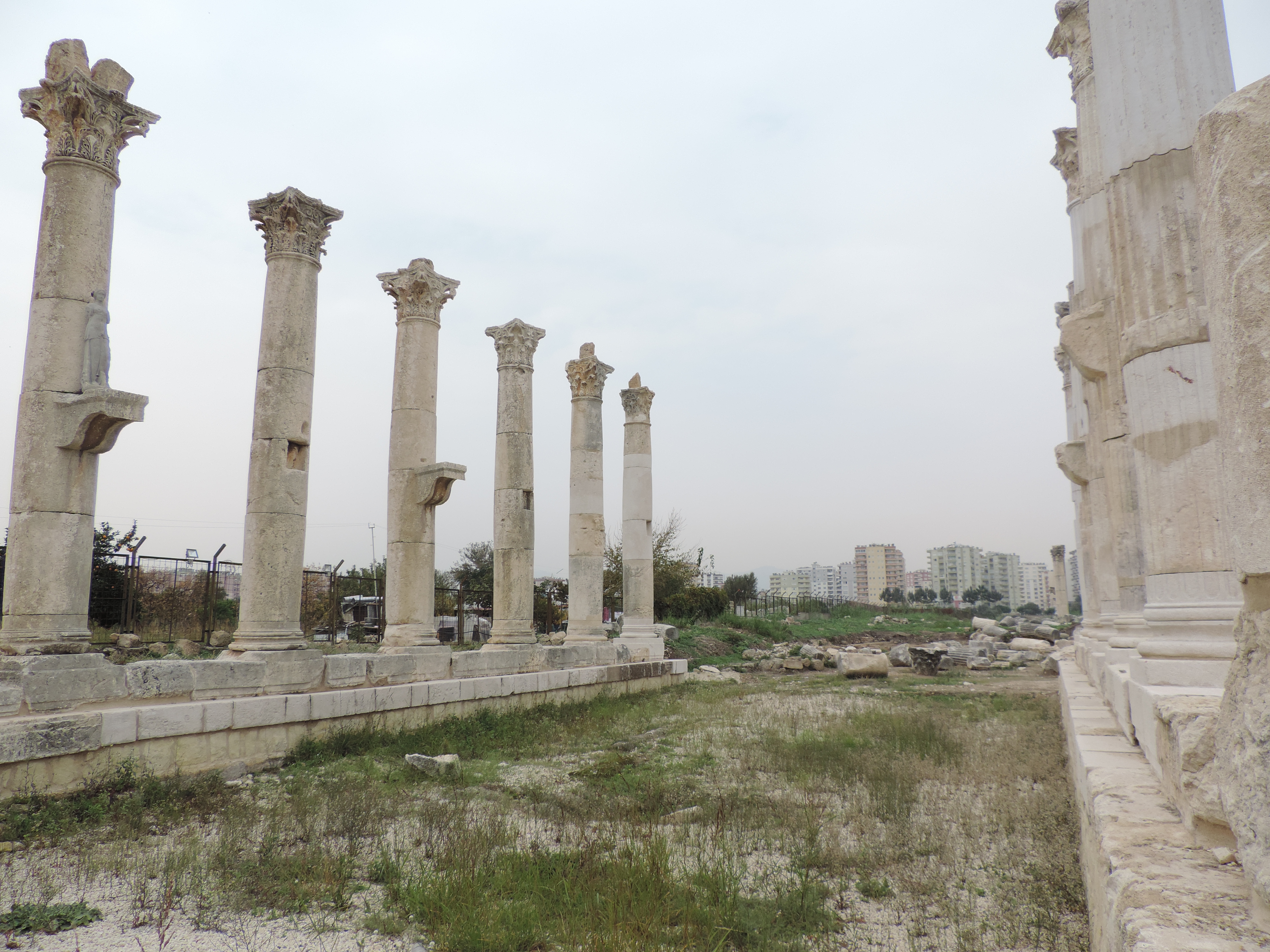|
Aratus
Aratus (; grc-gre, Ἄρατος ὁ Σολεύς; c. 315 BC/310 BC240) was a Greek didactic poet. His major extant work is his hexameter poem ''Phenomena'' ( grc-gre, Φαινόμενα, ''Phainómena'', "Appearances"; la, Phaenomena), the first half of which is a verse setting of a lost work of the same name by Eudoxus of Cnidus. It describes the constellations and other celestial phenomena. The second half is called the ''Diosemeia'' (Διοσημεῖα "Forecasts"), and is chiefly about weather lore. Although Aratus was somewhat ignorant of Greek astronomy, his poem was very popular in the Greek and Roman world, as is proven by the large number of commentaries and Latin translations, some of which survive. Life There are several accounts of Aratus's life by anonymous Greek writers, and the Suda and Eudocia also mention him. From these it appears that he was a native of Soli in Cilicia, (although one authority says Tarsus). He is known to have studied with Menecrate ... [...More Info...] [...Related Items...] OR: [Wikipedia] [Google] [Baidu] |
Antigonus II Gonatas
Antigonus II Gonatas ( grc-gre, Ἀντίγονος Γονατᾶς, ; – 239 BC) was a Macedonian ruler who solidified the position of the Antigonid dynasty in Macedon after a long period defined by anarchy and chaos and acquired fame for his victory over the Gauls who had invaded the Balkans. Birth and family Antigonus Gonatas was born around 320 BC. The origin of the Hellenistic nickname Gonatas is unknown. He was descended from the Diadochi (the successors of Alexander the Great) on both his father's and mother's side. His father was Demetrius Poliorcetes, himself the son of Antigonus I Monophthalmus, who then controlled much of Asia. His mother was Phila, the daughter of Antipater, who had controlled Macedonia and the rest of Greece since 334 BC and was recognized as regent of the empire, which in theory remained united. In the year of Antigonus Gonatas' birth, however, Antipater died, leading to further struggles for territory and dominance. The careers of Antigonus' ... [...More Info...] [...Related Items...] OR: [Wikipedia] [Google] [Baidu] |
Macedon
Macedonia (; grc-gre, Μακεδονία), also called Macedon (), was an ancient kingdom on the periphery of Archaic and Classical Greece, and later the dominant state of Hellenistic Greece. The kingdom was founded and initially ruled by the royal Argead dynasty, which was followed by the Antipatrid and Antigonid dynasties. Home to the ancient Macedonians, the earliest kingdom was centered on the northeastern part of the Greek peninsula,. and bordered by Epirus to the west, Paeonia to the north, Thrace to the east and Thessaly to the south. Before the 4th century BC, Macedonia was a small kingdom outside of the area dominated by the great city-states of Athens, Sparta and Thebes, and briefly subordinate to Achaemenid Persia. During the reign of the Argead king PhilipII (359–336 BC), Macedonia subdued mainland Greece and the Thracian Odrysian kingdom through conquest and diplomacy. With a reformed army containing phalanxes wielding the '' sarissa'' pi ... [...More Info...] [...Related Items...] OR: [Wikipedia] [Google] [Baidu] |
Constellation
A constellation is an area on the celestial sphere in which a group of visible stars forms a perceived pattern or outline, typically representing an animal, mythological subject, or inanimate object. The origins of the earliest constellations likely go back to prehistory. People used them to relate stories of their beliefs, experiences, creation, or mythology. Different cultures and countries adopted their own constellations, some of which lasted into the early 20th century before today's constellations were internationally recognized. The recognition of constellations has changed significantly over time. Many changed in size or shape. Some became popular, only to drop into obscurity. Some were limited to a single culture or nation. The 48 traditional Western constellations are Greek. They are given in Aratus' work ''Phenomena'' and Ptolemy's ''Almagest'', though their origin probably predates these works by several centuries. Constellations in the far southern sky were ... [...More Info...] [...Related Items...] OR: [Wikipedia] [Google] [Baidu] |
Eudoxus Of Cnidus
Eudoxus of Cnidus (; grc, Εὔδοξος ὁ Κνίδιος, ''Eúdoxos ho Knídios''; ) was an ancient Greek astronomer, mathematician, scholar, and student of Archytas and Plato. All of his original works are lost, though some fragments are preserved in Hipparchus' commentary on Aratus's poem on astronomy. '' Sphaerics'' by Theodosius of Bithynia may be based on a work by Eudoxus. Life Eudoxus was born and died in Cnidus (also spelled Knidos), which was a city on the southwest coast of Asia Minor. The years of Eudoxus' birth and death are not fully known but the range may have been , or . His name Eudoxus means "honored" or "of good repute" (, from ''eu'' "good" and ''doxa'' "opinion, belief, fame"). It is analogous to the Latin name Benedictus. Eudoxus's father, Aeschines of Cnidus, loved to watch stars at night. Eudoxus first traveled to Tarentum to study with Archytas, from whom he learned mathematics. While in Italy, Eudoxus visited Sicily, where he studied ... [...More Info...] [...Related Items...] OR: [Wikipedia] [Google] [Baidu] |
Callimachus
Callimachus (; ) was an ancient Greek poet, scholar and librarian who was active in Alexandria during the 3rd century BC. A representative of Ancient Greek literature of the Hellenistic period, he wrote over 800 literary works in a wide variety of genres, most of which did not survive. He espoused an aesthetic philosophy, known as Callimacheanism, which exerted a strong influence on the poets of the Roman Empire and, through them, on all subsequent Western literature. Born into a prominent family in the Greek city of Cyrene in modern-day Libya, he was educated in Alexandria, the capital of the Ptolemaic kings of Egypt. After working as a schoolteacher in the city, he came under the patronage of King Ptolemy II Philadelphus and was employed at the Library of Alexandria where he compiled the '' Pinakes'', a comprehensive catalogue of all Greek literature. He is believed to have lived into the reign of Ptolemy III Euergetes. Although Callimachus wrote prolifically in prose ... [...More Info...] [...Related Items...] OR: [Wikipedia] [Google] [Baidu] |
Aratos Von Soloi
Aratos ( el, Άρατος, tr, Karacaoğlan) is a settlement in the Arriana municipality, Rhodope regional unit, Eastern Macedonia and Thrace region, Greece. See also * List of settlements in the Rhodope regional unit This is a list of notable settlements in the Rhodope regional unit, Greece: * Aigeiros * Amaxades * Aratos * Arisvi * Arriana * Fillyra * Gratini * Iasmos * Imeros Rodopis * Kalchas, Rhodope * Kechros * Kizari * Komotini * Maroneia * Neo ... References {{coord, 41, 04, 51, N, 25, 33, 13, E, display=title, region:GR_type:city_source:GNS-enwiki Populated places in Rhodope (regional unit) ... [...More Info...] [...Related Items...] OR: [Wikipedia] [Google] [Baidu] |
Menecrates Of Ephesus
Menecrates of Ephesus (; grc-gre, Μενεκράτης ὁ Ἐφέσιος; 330–270 BC) was a Greek didactic poet of the Hellenistic period. He wrote a poem called the ''Works'' which was modeled upon Hesiod's ''Works and Days'' and included a discussion of bees based on the work of Aristotle. He was the teacher of the astronomical poet Aratus Aratus (; grc-gre, Ἄρατος ὁ Σολεύς; c. 315 BC/310 BC240) was a Greek didactic poet. His major extant work is his hexameter poem ''Phenomena'' ( grc-gre, Φαινόμενα, ''Phainómena'', "Appearances"; la, Phaenomena), the ....Philip Thibodeau, "Menekrates of Ephesos" , p. 545 in ''The Encyclopedia of Ancient Natural Scientists'', ed. Paul T. Keyser and Georgia L. Irby-Massie. London & New York: Routledge, 2008. Notes References *Edition of his surviving works: ''Supplementum Hellenisticum'', ed. Hugh Lloyd-Jones; P J Parsons; H -G Nesselrath; J U Powell. Berlin & New York : W. de Gruyter, 1983 {{authorit ... [...More Info...] [...Related Items...] OR: [Wikipedia] [Google] [Baidu] |
Pella
Pella ( el, Πέλλα) is an ancient city located in Central Macedonia, Greece. It is best-known for serving as the capital city of the ancient Greek kingdom of Macedon, and was the birthplace of Alexander the Great. On site of the ancient city is the Archaeological Museum of Pella. Etymology The name is probably derived from the word ''pella'', ( grc, πέλλα), "stone" which seems to appear in some other toponyms in Greece like Pellene.S.Solders ''Der unsprüngliche Apollon'' AfRw. XXXII,1935 S.142ff : M.Nilsson (1967): ''Die Geschichte der Griechische Religion'' Vol. I. C.F.Verlag München, p.204M.Nilsson (1967): ''Die Geschichte der Griechische Religion'' Vol. I. C.F.Verlag München, p.558 Julius Pokorny reconstructs the word from the Proto-Indo-European root peli-s, pel-s, Old Indian: pāsāna, stone (from *pars, *pels), Greek: , , stone, Hesychius (*pelsa), Pashto: parša (*plso), cliff, Germanic : *falisa, German: Fels, Old Norse: fell (*pelso), Illyrian: *pe ... [...More Info...] [...Related Items...] OR: [Wikipedia] [Google] [Baidu] |
Philitas
Philitas of Cos (; el, Φιλίτας ὁ Κῷος, ''Philītas ho Kōos''; – ), sometimes spelled Philetas (; , ''Philētas''; see Bibliography below), was a Greek scholar, poet and grammarian during the early Hellenistic period of ancient Greece. He is regarded as the founder of the Hellenistic school of poetry, which flourished in Alexandria after about 323 BC. Philitas is also reputed to have been the tutor of Ptolemy II Philadelphus and the poet Theocritus. He was thin and frail; Athenaeus later caricatured him as an academic so consumed by his studies that he wasted away and died. Philitas was the first major Greek writer who was both a scholar and a poet. His reputation continued for centuries, based on both his pioneering study of words and his verse in elegiac meter. His vocabulary ''Disorderly Words'' described the meanings of rare literary words, including those used by Homer. His poetry, notably his elegiac poem ''Demeter'', was highly respected by later ancient ... [...More Info...] [...Related Items...] OR: [Wikipedia] [Google] [Baidu] |
Greek Astronomy
Greek astronomy is astronomy written in the Greek language in classical antiquity. Greek astronomy is understood to include the Ancient Greek, Hellenistic, Greco-Roman, and Late Antiquity eras. It is not limited geographically to Greece or to ethnic Greeks, as the Greek language had become the language of scholarship throughout the Hellenistic world following the conquests of Alexander. This phase of Greek astronomy is also known as Hellenistic astronomy, while the pre-Hellenistic phase is known as Classical Greek astronomy. During the Hellenistic and Roman periods, much of the Greek and non-Greek astronomers working in the Greek tradition studied at the Museum and the Library of Alexandria in Ptolemaic Egypt. The development of astronomy by the Greek and notably Hellenistic astronomers is considered to be a major phase in the history of astronomy. Greek astronomy is characterized by seeking a geometrical model for celestial phenomena. Most of the names of the stars, plan ... [...More Info...] [...Related Items...] OR: [Wikipedia] [Google] [Baidu] |
Soli, Cilicia
Soli ( grc, Σόλοι, ''Sóloi''), often rendered Soli/Pompeiopolis ( grc, Πομπηϊούπολις), was an ancient city and port in Cilicia, 11 km west of Mersin in present-day Turkey. Geography Located in Southern Anatolia, on the edge of the timber-rich Taurus Mountains and fertile Cilician alluvial plain, Soli was constantly at or near regional boundaries; Kizzuwatna and Tarḫuntašša during Luwian/ Hittite occupation, and Cilicia Trachea and Cilicia Pedia during Graeco-Roman period. This, coupled with the city's good harbor and proximity to the Cilician Gates ensured that Soli was consistently of strategic importance throughout ancient history. History Neolithic Archaeological evidence indicates a human presence in the area as early as 7000 BCE at the Yumuktepe mound, 9 km to the northeast. Late Bronze Age The first known Luwian settlements and fortifications at Soli proper date the 15th century BCE, and the city was an active port from that tim ... [...More Info...] [...Related Items...] OR: [Wikipedia] [Google] [Baidu] |
Menedemus
Menedemus of Eretria ( grc-gre, Μενέδημος ὁ Ἐρετριεύς; 345/44 – 261/60 BC) was a Greek philosopher and founder of the Eretrian school. He learned philosophy first in Athens, and then, with his friend Asclepiades, he subsequently studied under Stilpo and Phaedo of Elis. Nothing survives of his philosophical views apart from a few scattered remarks recorded by later writers. Life Menedemus was born at Eretria. Though of noble birth, he worked as builder and tent maker until he was sent with a military expedition to Megara, from where he travelled to the Platonic Academy in Athens and resolved to devote himself to philosophy. At Megara he formed a lifelong friendship with Asclepiades of Phlius, with whom he toiled in the night that he might study philosophy by day. He was subsequently a pupil first of Stilpo and then of Phaedo of Elis, whose school he transferred to Eretria, by which name it was afterwards known. In addition to his philosophical work, he to ... [...More Info...] [...Related Items...] OR: [Wikipedia] [Google] [Baidu] |






_4th_Century_retouched.jpg)


